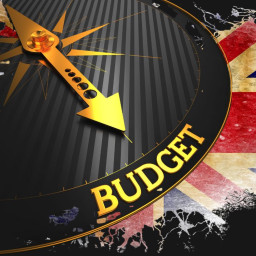
The Land Registry reported that house prices rose by 15.5% year-on-year in July, compared with 7.8% in June – the highest annual inflation rate since May 2003. Anecdotal information suggest that house offer prices are still increasing with new buyers trying to buy before the mortgage rates increase even further, but with surveyors taking a rather cautious approach to house valuation it is not likely to last or have a positive effect on the property market.
Experts believe house price inflation will slow down considerably in the remainder of 2022, and prices seem increasingly likely to fall next year amid the rising cost of living and soaring mortgage rates. It is believed that the stamp duty tax cut, upheld the Chancellor last month will have minimal effect on the demand and mortgage transactions.
As we have all seen in the news, mortgage lenders are not immune to the economic turbulence and due to considerable increases in whole markets swap prices and hikes to the Bank of England’s base rate, they too, increased the rates of borrowing for mortgage customers.
Average mortgage rates have increased by 4% – 4.5% in the last 12 months affecting mortgage affordability and household budgets. This upwards trajectory is likely to continue for some time to come affecting the property market in many ways.
One of the most common questions I get asked daily by my clients is whether to fix for 2 or 5 years. There is no simple answer to that question, as it depends on your personal attitude to mortgage rate risk and of course the state of the economy in the next few years.
How I ask my clients to think about it is, to try to imagine yourself in 2 – 3 years’ time, just coming off your - what appears to be an expensive - 2 – years fixed mortgage rate. How would you feel if the rates available at that time were even higher? Would your household budget be able to cope with that?
Similarly, if taking a 5 year fixed rate, how would you feel knowing that you are paying more in 3- 4 years’ time , should the rates go down? Would you be happy with it, knowing that it provided you with longer stability and certainty of monthly payments?
Understanding what those interest rates actually mean in terms of pound value and your personal cash flow is crucial in making the best decision.
There are risks and benefits to both approaches, you just need to choose one that is in line with your personal feelings about the future and your financial resilience.
Please give me a ring if you want to discuss your mortgage and need help in deciding the best course of action for the coming months and years.
Kat Chiva Dip FA, CeMap, CeRER
Haverfords Director

Experts believe house price inflation will slow down considerably in the remainder of 2022, and prices seem increasingly likely to fall next year amid the rising cost of living and soaring mortgage rates. It is believed that the stamp duty tax cut, upheld the Chancellor last month will have minimal effect on the demand and mortgage transactions.
As we have all seen in the news, mortgage lenders are not immune to the economic turbulence and due to considerable increases in whole markets swap prices and hikes to the Bank of England’s base rate, they too, increased the rates of borrowing for mortgage customers.
Average mortgage rates have increased by 4% – 4.5% in the last 12 months affecting mortgage affordability and household budgets. This upwards trajectory is likely to continue for some time to come affecting the property market in many ways.
One of the most common questions I get asked daily by my clients is whether to fix for 2 or 5 years. There is no simple answer to that question, as it depends on your personal attitude to mortgage rate risk and of course the state of the economy in the next few years.
How I ask my clients to think about it is, to try to imagine yourself in 2 – 3 years’ time, just coming off your - what appears to be an expensive - 2 – years fixed mortgage rate. How would you feel if the rates available at that time were even higher? Would your household budget be able to cope with that?
Similarly, if taking a 5 year fixed rate, how would you feel knowing that you are paying more in 3- 4 years’ time , should the rates go down? Would you be happy with it, knowing that it provided you with longer stability and certainty of monthly payments?
Understanding what those interest rates actually mean in terms of pound value and your personal cash flow is crucial in making the best decision.
There are risks and benefits to both approaches, you just need to choose one that is in line with your personal feelings about the future and your financial resilience.
Please give me a ring if you want to discuss your mortgage and need help in deciding the best course of action for the coming months and years.
Kat Chiva Dip FA, CeMap, CeRER
Haverfords Director







